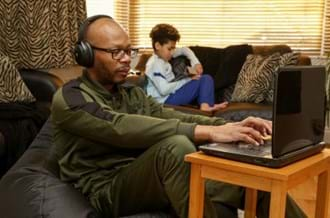5 ways to boost your child’s confidence and self-esteem
5 ways to boost your child’s confidence and self-esteem
In a blog written for Anti-Bullying Week, one of Place2Be's Regional Clinical Leads, Cecilia Corbetta, shares her tips for parents on boosting children’s confidence and self-esteem.
Every year, thousands of pupils book their own appointment to speak to Place2Be during lunch or breaktime (Place2Talk) and talk about things that are worrying them. One of the most common concerns is friendship problems.
We know that friendships are important to the children and young people we support, and that when friendships breakdown or children experience bullying, this can have a big impact on their wellbeing and self-esteem.
Watch the video above to hear Cecilia share her tips for boosting your child's confidence and self-esteem, or read the tips below.
Celebrate your child’s strengths and differences
The world would be a pretty boring place if we were all the same. Help your child to recognise, and love, their own qualities and interests - this could be their hair colour, skin colour, religion, hobbies, sports they’re good at... Notice and celebrate what makes them an individual and encourage them to see those positives and be a friend to themselves.
Have open conversations about feelings
Be a good role model and share your feelings openly with your child. This will show them that it’s okay to talk about how they feel – whether they feel happy and excited, or worried and sad. If your child knows they can talk to you about anything they’re feeling, they’ll be more likely to come to you and ask for help if they’re struggling.
Help your child to come up with their own ways to cope
As parents and carers, we often want to fix things for our children and do all we can to protect them from hurt or upset; but it’s important we don’t take over and we give our children a chance to deal with difficult situations on their own. Make it clear that you will step in if your help is needed (for example by talking to the school) or in circumstances where your child’s safety is at risk, but empower your child to come up with their own ideas to cope with problems by asking them questions like ‘how could you respond?’, ‘what do you think might help?’. If they can come up with their own coping strategies now, they’ll be able to use them in future situations.
Let them experience their feelings fully
Every feeling is valid and it’s so important we let our children feel all emotions. Try to avoid minimising their feelings (‘I’m sure it’s not that bad!’) or rescuing by trying to instantly make them ‘happy’ or saying things like ‘don’t be sad’. Instead, talk to them about their sad feelings and tell them it’s okay to be sad sometimes.
Make yourself available to listen
Sometimes your child may not want to talk, and it’s important we don’t force them to have a conversation they don’t want to have. Make yourself available but don’t pressure them to talk. You may find that your child opens up in situations where they feel less pressure – for example when you’re in the car on the way home from school, or during the walk to school in the morning. Create rituals where you have a chance to regularly connect - for instance at mealtimes.
Worried your child is being bullied? Here are some resources we recommend:
- Anti-Bullying Alliance – Advice for Parents
- NSPCC – Bullying and Cyberbullying
- YoungMinds - Bullying and Parents Guide to Bullying
- Place2Be - Supporting your child’s mental health and Get Urgent Help
News & blogs

Place2Be online parenting course now available to organisations
Place2Be's online parenting course helps working parents and carers feel better equipped to manage their parenting journey.
Read more
Three charities launch wellbeing video for young carers
Three charities have joined forces to launch a new video aimed at fostering the wellbeing and creativity of young carers.
Read more
“Know Yourself, Grow Yourself”: A look back at Children’s Mental Health Week 2025
During Children’s Mental Health Week 2025, we encouraged people to embrace self-awareness and explore what it means to them.
Read more



